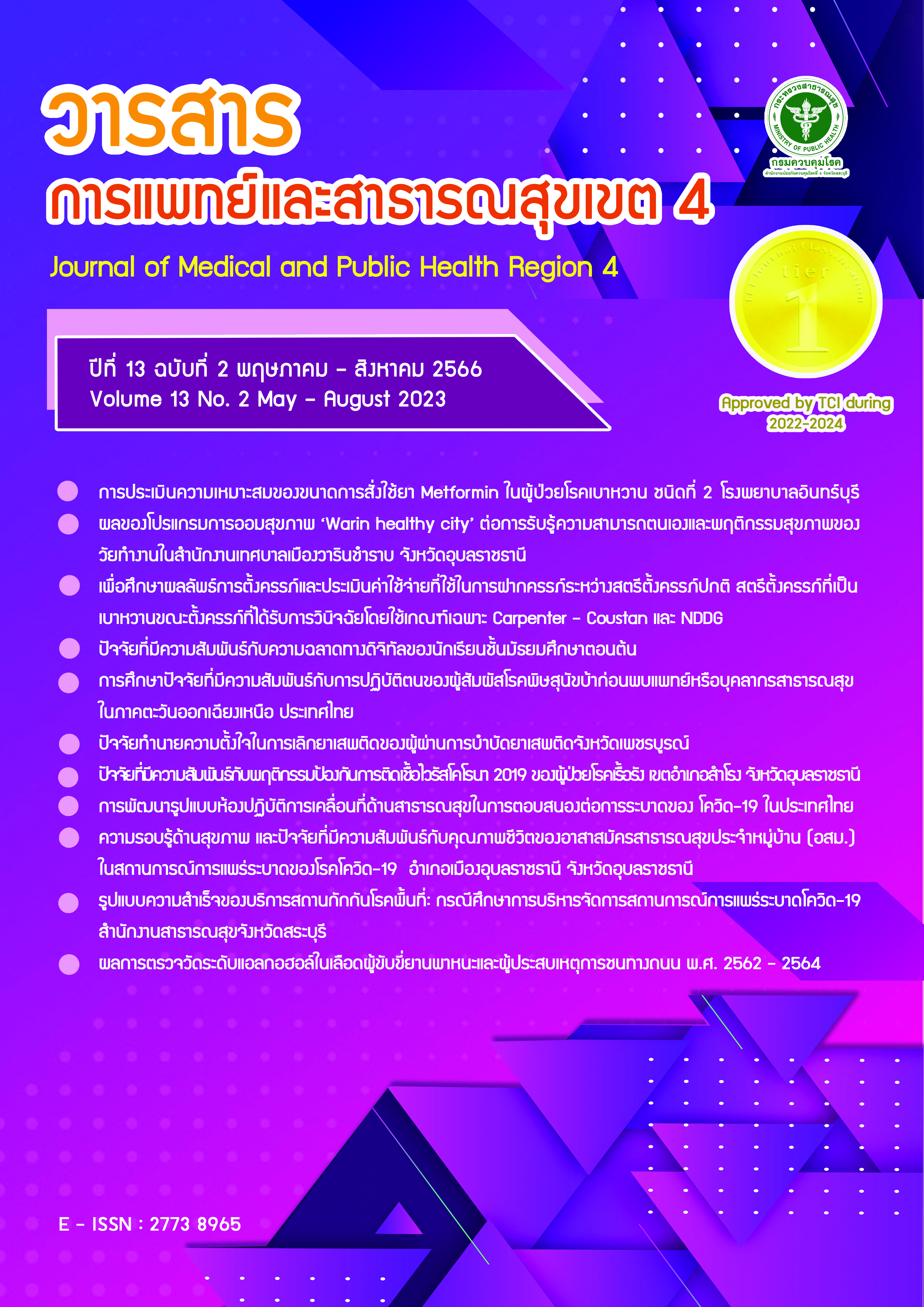The model for local quarantine service achievement: A case study on the COVID-19 pandemic-situation’ management of Saraburi Provincial Public Health Office
Main Article Content
Abstract
This qualitative study aimed to study the successful model of local quarantine services in Saraburi Province. Data were directly collected from focus group interviews with 12 owners of entrepreneur allowing to use hotels for local quarantine, 13 health care providers, 8 legal authorities, in-depth interview with 3 major administrators, and related document reports. Content analysis was used to interpretation. Findings were including 1) the process of setting local quarantine, 2) the concept for caring, 3) good outcomes were to stop the epidemic cycle, entrepreneurs felt proud and happy with collaboration, Saraburi Provincial Administrative Organization was a good model in efficiency budget support. People have increased knowledge of COVID-19 prevention, and 4) recommendations for improving health services of re-emerging diseases were making orientation system for new health providers, preventing escaped guarantees and providing jobs for them, managing cost analysis and residual wastes. Conclusion, the successful model in local quarantine services of provincial level were establishing with all social network’ participations.
Article Details

This work is licensed under a Creative Commons Attribution-NonCommercial-NoDerivatives 4.0 International License.
References
World Health Organization. WHO Coronavirus (COVID-19) Dashboard [Internet]. 2022 [cited 2022 Mar 23]; Available from: https://covid19.who.int/?mapFilter=vaccinations.
Ministry of Public Health, Department of Disease Control. Guideline for disease control in Quarantine Version 3.0 (2020). Bangkok The Printing Office Agency to assist veterans in Royal Shu patham; 2020. (in Thai)
Taghrir, M. H., Akbarialiabad, H., & Marzaleh, M. A. Efficacy of mass quarantine as leverage of health system governance during COVID-19 outbreak: a mini policy review. Archives of Iranian medicine.2020;23:265.
Patel A, Patel S, Fulzele P, Mohod S, Chhabra KG. Quarantine an effective mode for control of the spread of COVID19? A review. J Family Med Prim Care 2020;9(8):3867-71. DOI: 10.4103/jfmpc.jfmpc_785_20
Wongputh P, Udplong A, Apidechkul T. COVID-19 State Quarantine Operation at a Local Setting: Implementation Evaluation. J Health Sci Altern Med 2021; 3:16-22. DOI: 10.14456/jhsam.2021.4
World Health Organization. Monitoring the building blocks of health systems: a handbook of indicators and their measurement strategies; 2020 [cited 2022 Dec 20]. Available from: https://apps.who.int/iris/bitstream/handle/10665/258734/9789241564052-eng.pdf
Nicola, M., Sohrabi, C., Mathew, G., Kerwan, A., Al-Jabir, A., Griffin, M, et al. Health policy and leadership models during the COVID-19 pandemic: A review. International journal of surgery.2020;81:122-9.
Prinja S. Role of ideas and ideologies in evidence-based health policy. Iran J Public Health 2010;39:64-9.
Negro-Calduch, E., Azzopardi-Muscat, N., Nitzan, D., Pebody, R., Jorgensen, P., & Novillo-Ortiz, D. Health Information Systems in the COVID-19 Pandemic: A Short Survey of Experiences and Lessons Learned From the European Region. Frontiers in public health, 9. 2021.
Meeprasert A. Lessons learned from the success of health network for community drug safety surveillance in Singburi Province. Journal of Medical and Public Health Region 4 2019; 10:43-55.
Royal Gazette. The National Economic and Social Development Plan. [Internet]. 2022 [cited 2023 Mar 23]; Available from: https://www.nesdc.go.th/ewt_dl_link.php?nid=13150.


